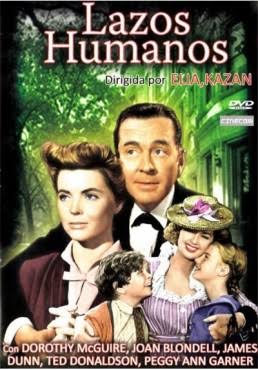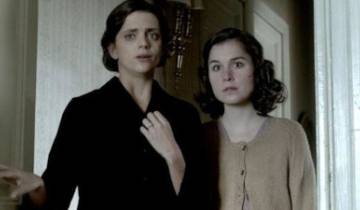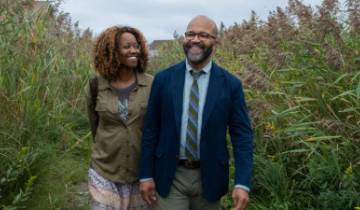
PREMIUM OPERA
By Pedro García Cueto
Elia Kazan began as a performer in the cinema, specifically in Anatole Litvak's film City of Conquest in 1940. He had already studied theater and was enthusiastic about dedicating himself to the world of cinema.
His directorial debut came in 1945 with the film Human ties, a film in which Kazan develops the world of immigration in the United States, a theme that will backbone his career because he was well acquainted with that family universe where emigrants had populated America, such as it happened with his own family.
Although Kazan, already in the fifties was marked by the witch hunt, his way of making films is still stylized and has many nuances. We must not forget the importance of the theatrical setting that breathes in the film version of Tennessee Williams' play A Streetcar Named Desire, whose success in the theater was very relevant at the time. Kazan directed the play and the film and his style is present in both versions, which highlights the staging of an essentially theatrical setting where passion and violence coexist.
In this first film, based on an adaptation of the Betty Smith novel, we are told the story of a Brooklyn family whose marriage of Johnny (James Dunn) and Katie Nolan (Dorothy McGuire) live the difficulties of a humble family, he is a drinker and an idealist and she is a hard worker, two universes that make up this family history where disenchantment coexists with small daily emotions.
The children: Francie (Peggy Ann Garner) and little Neely (Ted Donaldson) will have to manage to look for money in the city, the close-ups of their faces that Kazan, like an entomologist, is filming, demonstrate the mastery of the camera of the young director. The appearance of a police officer named McShane (Lloyd Nolan) will be important in the story. All the characters in this story reflect a disenchanted look at life, in front of Frank Capra's cinema that exudes optimism, here Kazan looks at his characters in their little worlds, aware of how difficult it is to get ahead.
The film tells us how Francie is an awake girl who wants to write, when she reads intensely in her school library. In a way, women reflect a more practical and entrepreneurial spirit than men, since their father reflects the cowardice of vital frustration which leads him to drink.
If the first part of the film contains ups and downs that make us still in front of an incipient filmmaker, in the second Kazan's gaze manages to move us, because everyday events unfold in tragedy. A tragic world in the characters always beats in Kazan's work, as was very clear in Stanley Kowalski or the informer character in The Law of Silence. In a scene where Christmas arrives, the children of the couple fight to get a tree, such is the poverty that surrounds them and the desire to change their lives.
The scene in which the children climb the tree while the neighbors sing Christmas carols shows us that the little things are the only things we can cling to to find happiness. The mother argues with her husband and he leaves home. He has yielded to his powerlessness to lead a successful life, wrapped up in his vital frustration.
Shortly after they know that he has died and in an emotional scene we can see the neighbors attending the funeral, which teaches his wife the idea of true affection, despite being a man without goals or future. In Kazan, the compassionate look always prevails at its characters, even those who may have sinned as idle or cruel. As if the director knew the hard battle for life, in his cinema there are always traces of an inner heroicism, the beings in his films cannot only be guilty without forgetting how their vital circumstances have been, such as the incest in The Engagement, already that the happiness of the married man has gone into dry dock and his need to find a woman who will fill his vital dissatisfaction pushes his life with failures (a role magnificently played by the great Kirk Douglas).
There is a theme already mentioned that is paramount in the film, it is about the effort to survive in a country where there are many adversities for foreigners. The words of the grandmother who remembers her Irish origin and how she has managed to overcome all the obstacles in a country like the United States. In fact, after that speech it seems that we hear Kazan's voice that speaks to us of that desire to improve that he also lived.
If I had to choose a moment in the film, I would highlight the Christmas party, where everyone comes together in their modesty and humility, aware of the fragility that unites their lives. The film improves in the second part because it is in this where it moves, as in the fact of the loss of the husband, the overcoming of the family before this event and the desire to face a future with courage.
As a culmination, I would like to point out that Kazan opens a door to an emotional cinema, we must remember the enormous beauty of Marlon Brando (Terry Malloy in the film) in The Law of Silence when he caresses the dove next to the beautiful Eva Marie Saint, which shows the degree of vulnerability of apparently tough characters, but in reality brimming with an inner tenderness and the powerful desire to be loved,
When Kazan betrayed his fellow communists, he paid a high price for it, but we must know that he was also a man disbelieving in the totalitarian system imposed by communism and that there really were pressures in his life. He paid for it dearly with the silence and contempt of many film people, but the moment when Robert de Niro (actor who worked in the last Kazan film: The Last Tycoon) and Martin Scorsese gave him the honorary Oscar is unforgettable. Many actors did not get up, others did like Warren Beatty. Kazan's decision left a mark, but his cinema is made with the strength of the artist who put his spirit and his total love for cinema in each film.
In Human Ties we already see an incipient artist, later creator of several masterpieces, a man who knew how to impress his images with beauty and desolation. Nothing more and nothing less.


